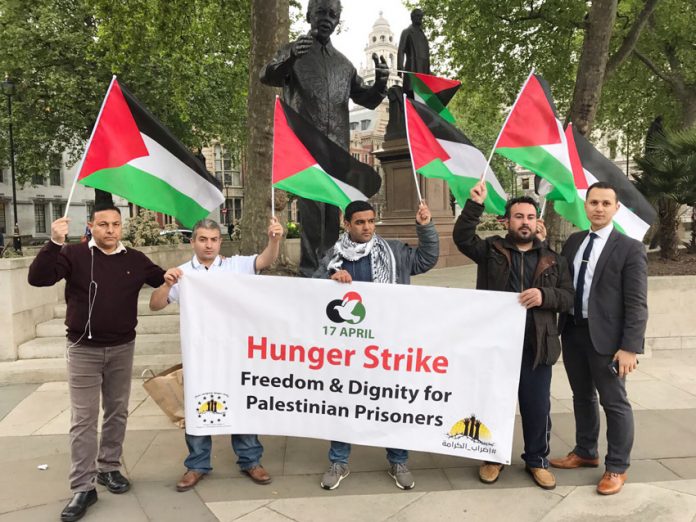
A BRITISH national of Palestinian origin, Aysar Shamallakh, who is an active and co-founder member of the ‘17 April Group’, has started an awareness campaign in support of the 1,600 Palestinian prisoners hunger strike, which started on 17 April 2017.
Aysar has started an open-ended hunger strike which started from 2 May at 18.00 in Parliament Square, London. The 17 April group is made up of youth and activists whose aim is to support the steadfastness of the Palestinian prisoners in Israeli jails.
The group said: ‘We have chosen for our voluntary group the name “April 17 Group” – April 17th is Palestinian Prisoners’ Day. In our volunteer work we seek to devise the best methods and events in support of the steadfastness of our brave prisoners in their hunger strike, in protest against the practices of the Israeli Prison Service.
‘Since the first day (17 April 2017) of the “freedom and dignity” strike, we have committed ourselves to supporting the prisoners’ movement against the occupation and its detentions, to mobilise British public opinion to pressure the British government to exercise its political and moral role to support the prisoner humanitarian rights.
‘After a number of pickets opposite the Israeli Embassy in London, in support of the “Freedom and Dignity” strike on its 16th day, there is now a deterioration of the health situation for a number of prisoners on strike.
‘To express true solidarity Aysar, an active member of our 17th April Group, decided to start an indefinite hunger strike for Freedom & Dignity in Parliament Square opposite Westminster Abbey in solidarity with the Palestinian prisoners.’